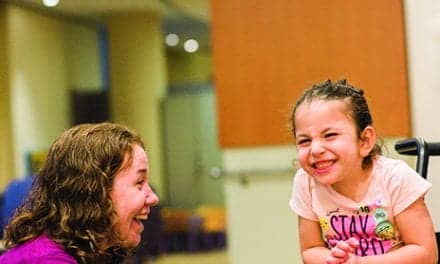A research team, in a new study, provides new neuroscientific evidence suggesting how a patient’s motivation level affects how well motor function is recovered during rehabilitation from a spinal cord injury.
The research team was led by Associate Professor Yukio Nishimura, National Institute for Physiological Sciences (NIPS), Natural Institutes of Natural Sciences (NINS); Masahiro Sawada, a former graduate student of Kyoto University; and Hirotaka Onoe, PhD, a team leader at RIKEN Center for Life Science Technologies.
Via a research project focusing on a monkey with a spinal cord injury, they found that the nucleus accumbens, which controls motivation in the brain, activates the activity of the motor cortex of the brain, and then promotes recovery of motor function during the early stage of recovery after spinal cord injury, according to a media release from National Institutes of Natural Sciences.
In their study, published recently in the journal Science, the team focused on the relationship between the neuronal activity of the nucleus accumbens that controls motivation, and those of the motor cortex that controls motor function, in a monkey suffering from spinal cord injury.
When the researchers temporally blocked the activity of the nucleus accumbens of the monkey 1 month after spinal cord injury, the monkey’s motor cortex activity was suppressed and a transient deficit of amelioration in finger dexterity was obtained by rehabilitation. In the intact monkey, and also in the fully recovered stage (3 months after spinal cord injury), such deficit in hand movement by blocking the activity of the nucleus accumbens was not observed, the release explains.
This suggests that the nucleus accumbens makes a causal contribution to the functional reinstatement of hand control during early-stage recovery, and the activity of the nucleus accumbens successfully promotes functional recovery, the release continues.
“Our result suggests that in the early stage after brain injury, including spinal cord injury, it is important to motivate the patients for promoting functional recovery in rehabilitation,” states Nishimura in the release.
“Psychological support for these patients may be important,” he continues.
[Source(s): National Institutes of Natural Sciences, Science Daily]






Great article – the motivation has power!